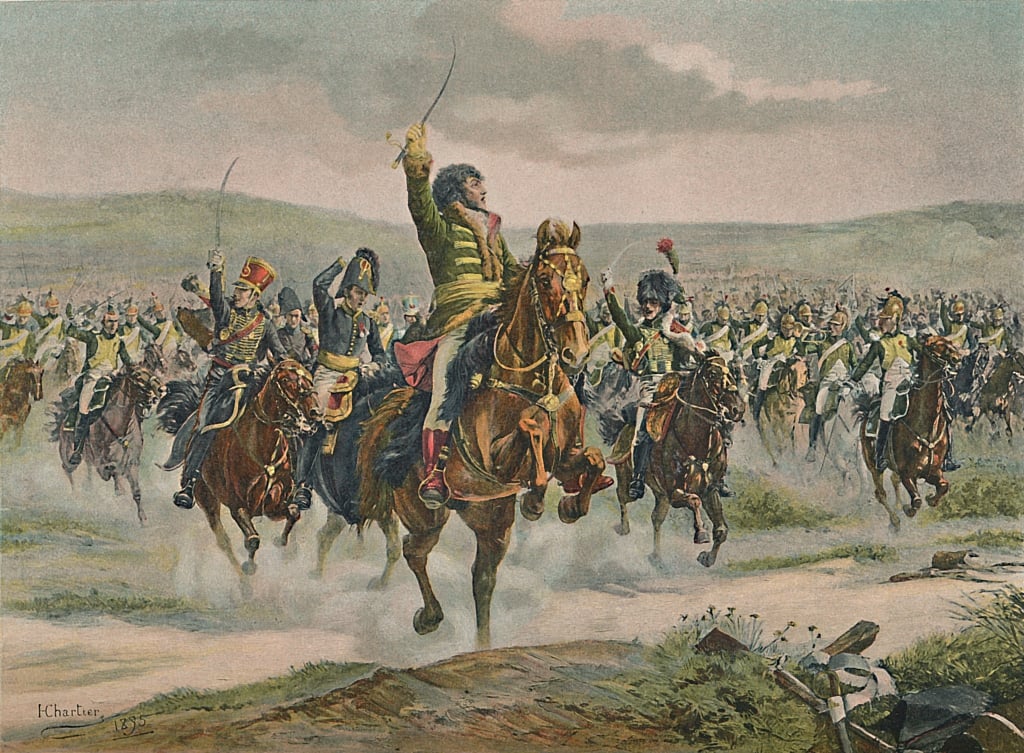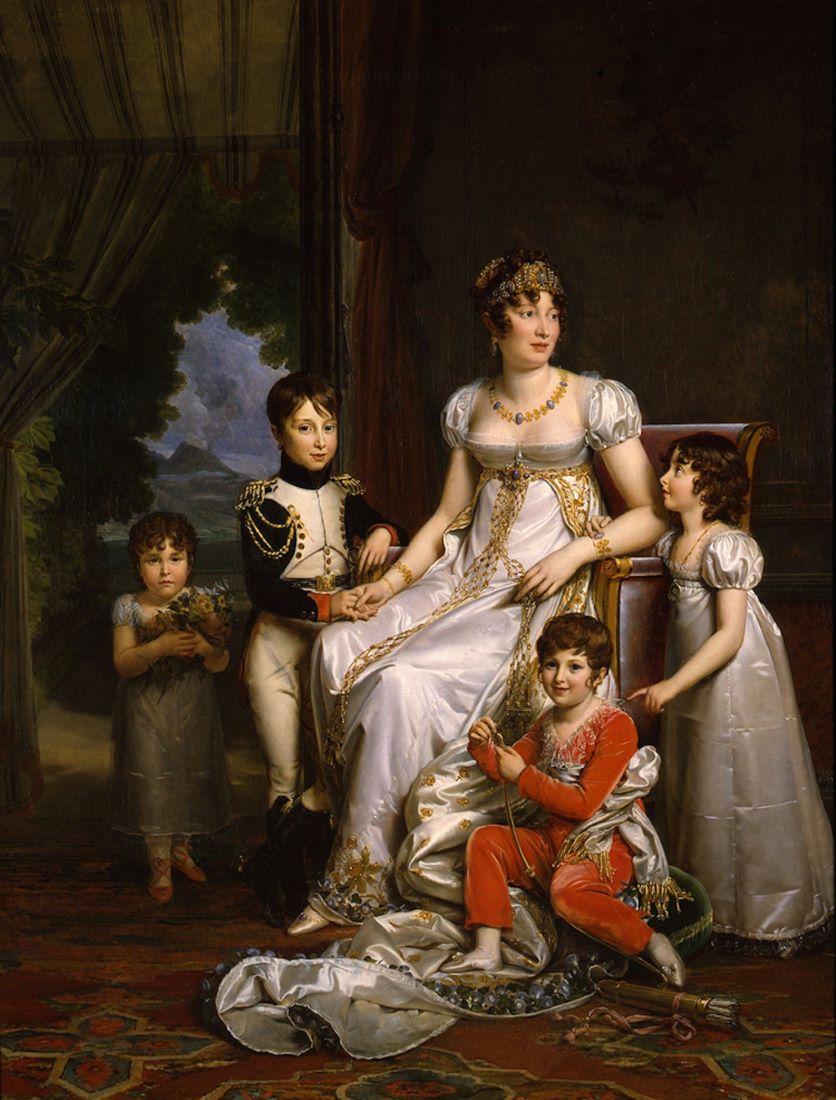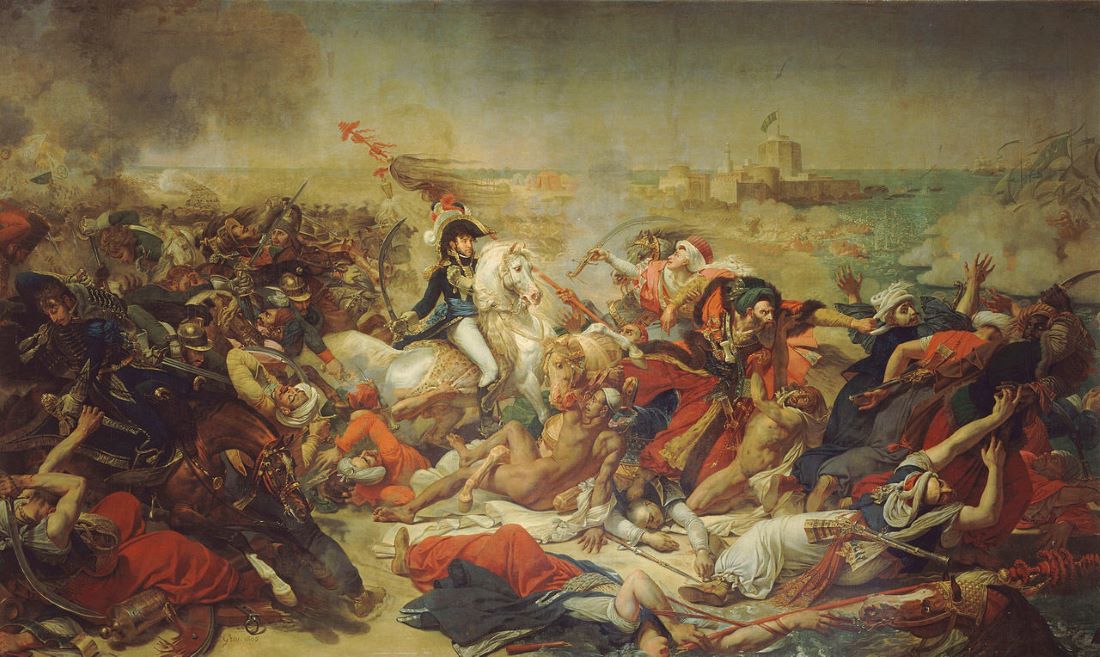Joachim Murat was a prominent and intriguing figure in the Napoleonic era, known for his flamboyant personality and military prowess. As one of Napoleon’s most trusted generals, he played a key role in many of the major campaigns of the time. Murat’s life was a tapestry of loyalty, ambition, and betrayal; from being Napoleon’s brother-in-law to the King of Naples as Joachim-Napoleon. Despite his initial loyalty, which saw him follow Napoleon even into the disastrous Russian campaign, Murat’s ambitions and shifting allegiances eventually led him to betray the Emperor. His desire for power and autonomy marked the latter part of his life, ultimately leading to his downfall and execution.
Early Life and Rise to Prominence
Joachim Murat was born on March 25, 1767, in La Bastide-Fortunière, France, into a modest family. His early years were marked by a desire for adventure and military glory, which led him to join the French cavalry. Murat quickly distinguished himself with his boldness and skill in battle, catching the attention of the rising military leader, Napoleon Bonaparte. Their first meeting laid the foundation for a close relationship, as Murat’s daring nature and loyalty endeared him to Napoleon, who soon promoted him through the ranks.

Murat’s early military career was filled with notable successes. He played a significant role in the Italian campaigns, where his audacity in battle earned him the admiration of his peers and the trust of Napoleon. His most famous early action came during the Battle of the Pyramids in Egypt, where his leadership and bravery were crucial to the French victory. These achievements solidified his reputation as one of the most capable cavalry commanders in Europe, paving the way for his future rise in the Napoleonic hierarchy.
Murat as a Trusted General and His Ambitions
As Napoleon’s most reliable cavalry commander, Joachim Murat became indispensable in the Emperor’s grand strategies. He participated in many of Napoleon’s key victories, including the battles of Marengo, Ulm, and Austerlitz. Murat’s ability to execute complex cavalry maneuvers with precision made him a crucial asset to the French army. However, Murat was not content with just military glory; he harbored ambitions that extended beyond the battlefield.

Murat’s ambitions came to the fore when Napoleon appointed him as the King of Naples in 1808, after initially expressing a desire to rule Spain. Although disappointed by not receiving Spain, Murat embraced his new role with enthusiasm, seeing it as a stepping stone to greater power. His rule in Naples was marked by efforts to modernize the kingdom and strengthen his position. Despite his ambitions, Murat remained loyal to Napoleon, even joining him in the ill-fated Russian campaign of 1812, where he commanded the cavalry with his usual flair and bravery.
After the disastrous retreat from Russia and the Battle of Berezina, Napoleon left the remnants of the Grande Armée under Murat’s command as he returned to Paris to raise a new army. However, Murat soon began to speak out against Napoleon, stating,
“It is no longer possible to serve a madman”
lamenting his missed opportunity to accept secret proposals from the British, which would have allowed him to abandon the French Emperor in exchange for being recognized as the legitimate King of Naples. His complaints were met with harsh rebuke from Marshal Louis Davout, one of Napoleon’s most loyal followers:
“The King of Prussia and the Emperor of Austria rule by the grace of God, tradition, and the habits of their people; but you, you are a king only by the grace of Napoleon and the blood of the French; you are blinded by the blackest ingratitude.”
Shortly after withdrawing from Russian territory, concerned for his kingdom, Murat abandoned the French army and returned to Naples.
King of Naples and Murat’s Political Maneuvering
As King of Naples, Joachim Murat harbored grand ambitions of uniting Italy under his rule. He sought to expand his influence and secure his kingdom’s independence from French control. This period marked a shift in Murat’s loyalty to Napoleon, as he began to distance himself from the Emperor and seek alliances with other European powers. His desire to establish himself as a ruler in his own right led him to negotiate with Austria and even consider betraying Napoleon.

Murat’s ambitions for Italian unification were driven by both personal and political motives. He saw himself as the natural leader of a united Italy and believed that such a move would secure his legacy. However, his plans were met with resistance from both his subjects and the broader European powers, who were wary of his intentions. Despite his efforts, Murat’s dream of a unified Italy remained unfulfilled, and his shifting loyalties left him increasingly isolated.
Murat’s Downfall and Execution
Joachim Murat’s downfall was swift and dramatic. After Napoleon’s defeat in 1814, Murat attempted to navigate the complex political landscape of post-Napoleonic Europe. He initially allied with the Austrians, hoping to secure his throne, but his indecision and lack of support led to a rapid loss of power. When Napoleon returned from exile in 1815, Murat made a last desperate bid to regain his kingdom by declaring war on Austria, but his efforts were futile.

After Napoleon’s final defeat at Waterloo, Joachim Murat made a desperate attempt to reclaim his throne in Naples. He arrived in the small town of Pizzo in Calabria, where he was swiftly captured and condemned to death. On October 13, 1815, dressed in a white shirt, vest, and blue civilian tunic with black hussar boots, Murat faced his execution with dignity. Earlier that day, he had confessed to a priest, a man whose church he had once generously supported during his reign. Before meeting his fate, Murat penned a heartfelt letter to his wife, Caroline, enclosing a few locks of his hair. He also gifted his watch to his servant and held a cameo of Caroline as he walked into the courtyard where he would meet his end.
Refusing a chair and declining a blindfold, Murat chose to face his death as he had faced countless battles, unflinching and with courage. As the firing squad prepared to shoot, he kissed the cameo and held it close, instructing the soldiers,
“Do your duty; aim for my heart, but spare my face.”
His body was never recovered. Some accounts claim he was buried in a mass grave, while others suggest his remains were thrown into the sea. Another version asserts that his head was severed and sent to King Ferdinand of the Two Sicilies to confirm that Murat, the usurper, was truly dead.
Caroline Bonaparte, Murat’s wife and Napoleon’s sister, outlived him, spending her remaining years in relative seclusion. Despite the challenges in their relationship, Caroline remained loyal to Murat, and their letters reveal a profound connection that persisted until his untimely death.
Historical Challenge: Can You Conquer the Past?
Answer more than 18 questions correctly, and you will win a copy of History Chronicles Magazine Vol 1! Take our interactive history quiz now and put your knowledge to the test!

